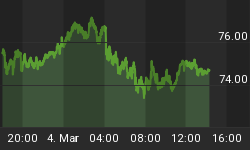Friday's rumor of a run on a Spanish bank proved to be false, but may have shed light on Europe's ongoing challenges.
Banco Bilbao Vizcaya Argentaria (BBVA) sponsored a fun run that drew a large crowd on Friday morning. The banks queues falsely spurred insolvency rumors that sent ripples throughout the financial world.
While the rumors were squashed hours later the damage was already done. The euro tumbled nearly 1% against the dollar as the scrutinized 2-year EU/US yield differential narrowed to a 2-week low.
More importantly, however, for the first time in sometime event risk was driven by news from outside the United States. The currency markets have been obsessed with the anticipation of the Federal Reserve's QE II. According to Ashraf Laidi of CMC Markets, the EUR/USD has risen 3.5% in a 2 week span while Irish/Greek/Spanish 10-year spreads widened 20-25% relative to German yields.
With memories still fresh of the European sovereign debt crisis, widening periphery spreads are causing many to refocus on the Eurozone's challenges. The Irish spread widened to a record high against the benchmark German Bund on Friday. This highlights Ireland's debt problem due to mounting cost of bailing out the problematic banking system.
Elections in Greece have highlighted anxieties of austerity measures, causing the Greek/German to widen to their highest levels since September. And in Spain, spreads have widened to 4-month highs as government's budget cuts continue to face widespread opposition.
Friday's positive non-farm payroll report may suggest that the US economy is not as bad as Ben Bernanke and company have expected. With QE II now fully discounted there is a high probability that market focus could shift back to Europe's stressed sovereign political outlook.
While it may be premature to call a bottom in the US Dollar, there is technical evidence that Friday's corrective recovery could continue into the middle of next week. Bullish diverging daily studies could direct dollar bulls towards the resistant 20-day moving average.















